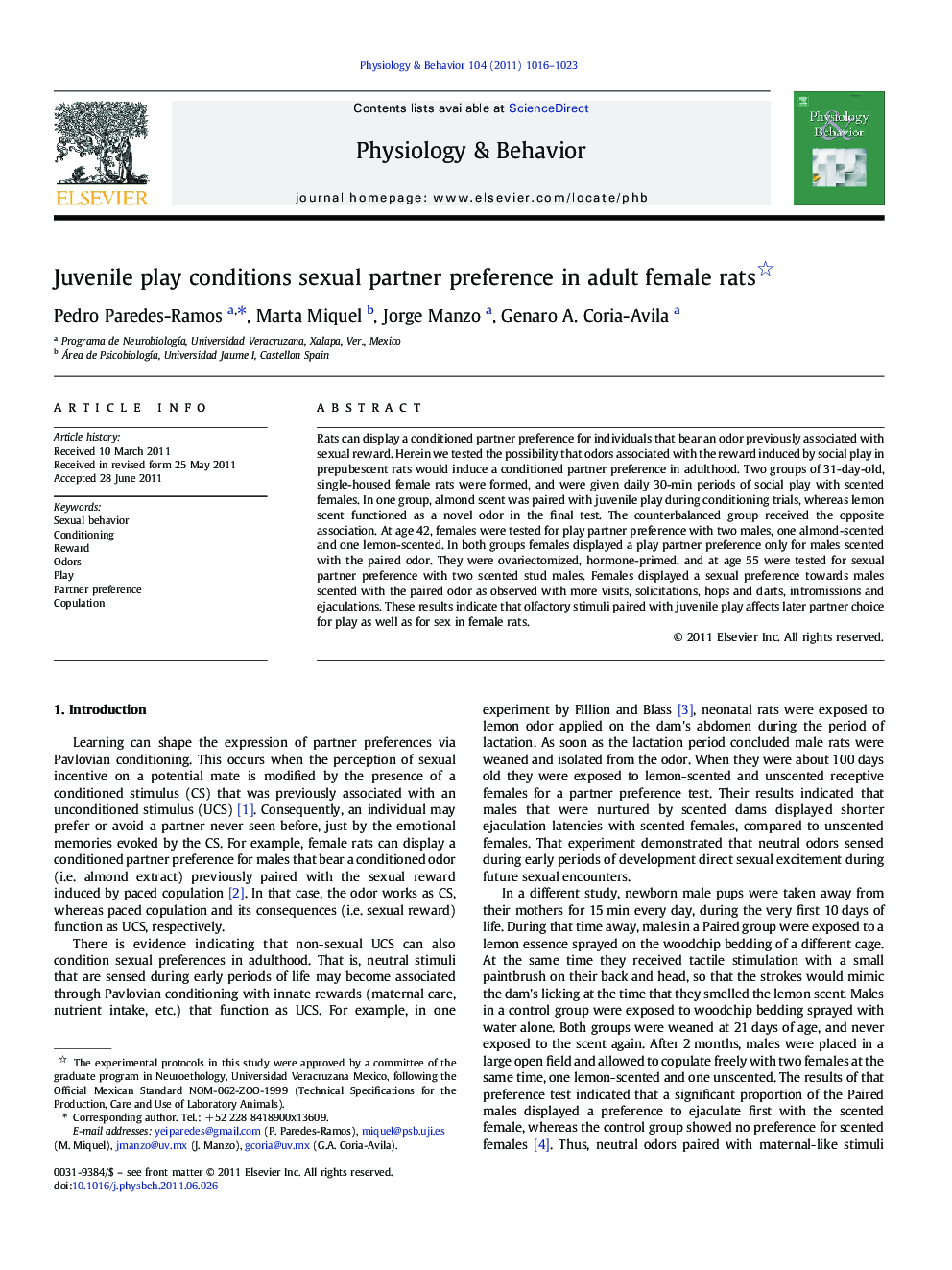| Article ID | Journal | Published Year | Pages | File Type |
|---|---|---|---|---|
| 5925303 | Physiology & Behavior | 2011 | 8 Pages |
Rats can display a conditioned partner preference for individuals that bear an odor previously associated with sexual reward. Herein we tested the possibility that odors associated with the reward induced by social play in prepubescent rats would induce a conditioned partner preference in adulthood. Two groups of 31-day-old, single-housed female rats were formed, and were given daily 30-min periods of social play with scented females. In one group, almond scent was paired with juvenile play during conditioning trials, whereas lemon scent functioned as a novel odor in the final test. The counterbalanced group received the opposite association. At age 42, females were tested for play partner preference with two males, one almond-scented and one lemon-scented. In both groups females displayed a play partner preference only for males scented with the paired odor. They were ovariectomized, hormone-primed, and at age 55 were tested for sexual partner preference with two scented stud males. Females displayed a sexual preference towards males scented with the paired odor as observed with more visits, solicitations, hops and darts, intromissions and ejaculations. These results indicate that olfactory stimuli paired with juvenile play affects later partner choice for play as well as for sex in female rats.
⺠Juvenile play (JP) is rewarding. ⺠Odors paired with JP condition play partner preference in prepubescent female rats. ⺠Odors paired with JP condition sexual partner preference in adult female rats. ⺠Sexual preference includes more appetitive and consummatory behaviors. ⺠This conditioned preference may be strong enough to support assortative mating.
